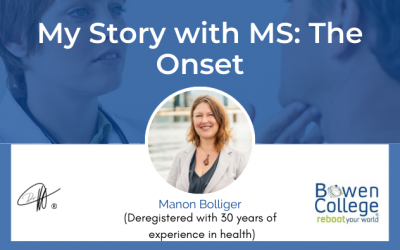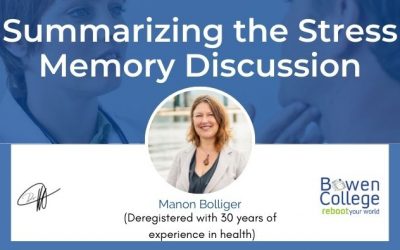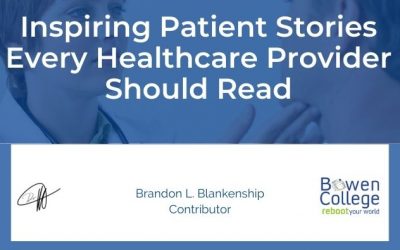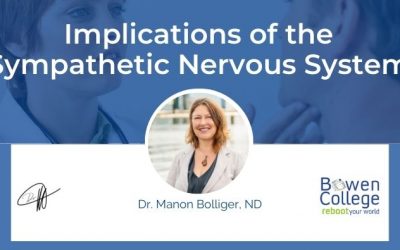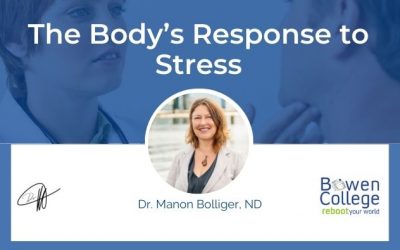News from the Bowen College community
Bowen College is committed to patient-centered, pain-free care. Read news from our community.

Subscribe to the Bowen College blog to read the latest updates for holistic, patient-centered care
My Story with MS: Its Emotional Resolution
I ended my last post commenting on how my treatment for MS helped change my perspective on my marriage. It allowed me to emotionally separate from my husband and to realize that he was likely going through a process that was truly his own and which had nothing to do...
My Story with MS: Treatment
In previous recent posts I’ve discussed my experience with MS. I’ve reviewed my experience of emotional deprivation in my marriage as a key touchstone in my own journey. Last post I reviewed the symptoms that led to my diagnosis. I chose homeopathic treatment as I had...
My Story with MS: The Symptom Picture
In my last post I shared some of the emotional background to my onset of MS. The history, the symptoms and the neurological exam results (ie. Hyper-excitable reflexes, inability to walk foot to heel in a straight-line, hyper-sensitivity to heat) all led to my...
My Story with MS: An Important Insight
I began to wonder whether I had asked too much of life, whether I should just accept my situation: learn to live without love. Of course, in the beginning, I was happily convinced that my marriage met all that was required in a proper match, but now nothing alleviated...
My Story with MS: The Onset
When I first got MS, I was 21. A sudden bout of optic neuritis sent me to an ophthalmologist, thinking I had cut my eye with my contact lenses. My eye was blinded and the pain did not allow me to easily open it; when I did, I saw double. The ophthalmologist reassured...
The Biology of Emotions –Psychoneuroimmunology
In 1975, scientists Robert Ader and Nicholas Cohen demonstrated classic conditioning of the immune function in their experiments with rats at the University of Rochester. In the process the coined the term "psychoneuroimmunology." (Ader & Cohen, 1975...
Bowen allows for a safe and rapid healing process
Bowen "moves" initiate and stimulate energy flow. That energy flow translates into a safe, rapid self-healing process which typically provides long term relief from pain and discomfort, for a wide range of conditions. BowenFirst™, allows the body and mind to...
The Necessity of a Guide
We started our first steps toward me telling you about my healing journey with MS. As preliminary to that, it was necessary to remind you of a couple important things. Including that each person’s journey will be individual. There are no cookie cutter solutions....
Healing is a Journey Informed by Fear and Love
Over the next several posts, I want to tell you the story of my personal journey and life-changing encounters with Multiple Sclerosis (MS). First, a disclaimer: I hope that I have made it clear that just as there is no such thing as the “right” life journey for...
Coping Skills and Helpful Attitudes for Dealing with Stress
In the last post, I introduced the notion that stress didn’t act upon our immune and nervous systems in an entirely unmediated way. The flip side of the mind-body connection is that effective use of the mind can benefit the well-being of the body. Skills to cope with...
Coping with Stress as a Variable
In previous posts it has been well established that the immune system is susceptible to the cascade of effects produced by stress, but what makes one person’s immune system more susceptible? Can stress have statistically measurable and quantifiable consequences for an...
How Does Stress Become Illness?
Numerous studies show that stressors can have profound emotional and physical health consequences. Stressful events trigger cognitive and affective responses, which in turn induce sympathetic nervous system and endocrine changes that ultimately impair immune function....
Early Childhood Trauma and Chronic Disease
The high correlation between early childhood trauma and chronic diseases has prompted research on the body’s reaction to prolonged versus occasional stress and whether it could be measured through biological indices. According to Steven Maier: “Research shows that the...
Summarizing the Stress Memory Discussion
The last several posts have explored the biomechanics of stress memory. Reactions to all stressors are stored in memory. As stressors are activated or reactivated, the previously conditioned responses are retrieved from memory, primarily by the hippocampus, which is...
Muscles Standing “on Guard”
In the past few posts we’ve explored how sensitive is the neuro-immune system. This fact has been reflected by the large number of patients I see “wired” with generalized muscle tension which persists long after the initial injury. Many mechanisms appear to be in...
The Ills of Stress Memory
My last post explained how stress memory could contribute to deleterious effects upon health. Research is finding that systemic or neuro-inflammation and neuroimmune activation play a role in the etiology of a variety of neurodegenerative disorders, such as...
Stress Memory
The “stress memory” also needs to be addressed, not just the original cause of the stress. Although removing the cause, exiting an abusive relationship for example, will alleviate triggering the stress feedback loop, susceptibility persists until the body releases the...
More on the Deleterious Effects of Excessive Cortisol Levels
In the last post we saw how stress triggered cortisol and some of the deleterious effects of excessive, prolonged cortisol in the system. A less known effect of cortisol is its ability to divert blood glucose from the brain, in particular the hippocampus, to muscles....
Inspiring Patient Stories Every Healthcare Provider Should Read
As noted by a study in the BMC Health Services Research, patient-centered care is implemented by providing customized treatment, sharing pertinent information with the patient and approved third parties, and nurturing a supportive and healing environment....
The Hypothalamic-Pituitary-Adrenal Axis
In previous posts we’ve seen the importance of stress in the mind-body connection of good health. Our primary stress management pathway is the hypothalamic-pituitary-adrenal (HPA) axis that signals the endocrine system to release hormones. The HPA axis responds to...
Implications of the Sympathetic Nervous System
In the last post, we explored the biology of the sympathetic nervous system. Among the things we learned was that neurotransmitters are released from the brain during times of stress, resulting in increased interleukin-1 in the hippocampus. As Steven Maier explains,...
The Body’s Response to Stress
In recent posts we’ve explored the biochemistry of the nervous and immune systems, particularly with regard to how stress affects the mind-body system and can thereby affect our health. Now it’s time for a broader picture view of the body’s response to stress. ...
Legal Resources
A company cannot mandate an employee to take an experimental drug, they would also have to do the following to justify their decision, which is then challengeable: 1. A risk assessment under the Management of Health & Safety at Works Act 1999, as to why they want...
A Plea from RCMP
The this is a, this is a surreal moment for me. When I think back to two years ago, this was not part of my life plan that's for certain. I, ironically enough, similar to Dr. Danesi, losing her job over a violation of what she held to be her ethics. I'm about to lose...





